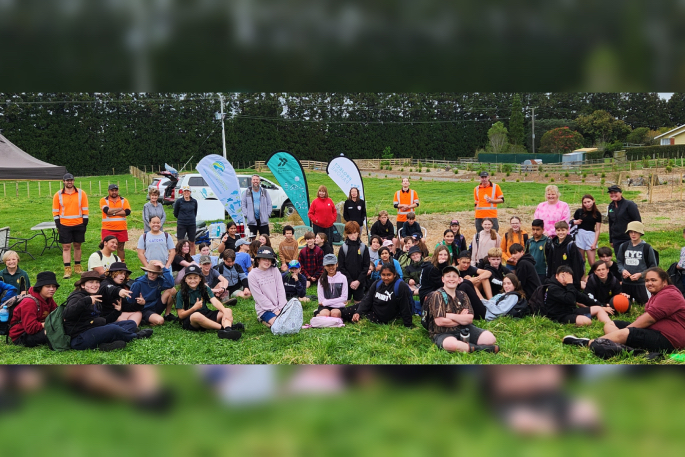There are now 4000 more native plants in the ground thanks to a recent native bush restoration effort around Katikati.
Hundreds of worms were counted recently by western BOP students on Katikati farms, with 400 sausages consumed during the project.
A collaborative initiative by Project Parore and Bay Conservation Alliance - BCA - saw local students involved in planting and other soil and conservation related activities during educational field trips.
The trips ran over seven days on private land where farmers are restoring areas of native bush and also included a site behind the Western Bay Museum.
Project Parore is a catchment group that works in partnership with funders, community and landowners on projects to enhance the environment from Aongatete to Athenree.
This year, Project Parore will plant approximately 100,000 native plants to stop erosion and sediment from reaching Tauranga Harbour.
Alongside the planting, the students rotated through activities on the impact of sediment and pest trapping on our natural areas and waterways.
The students also learned how to carry out a simple visual soil assessment, checking the porosity and structure of the soil and counting the worms to show how healthy it is.
These assessments were done on different parts of the farm to compare muddy areas, paddocks compacted by animals and under fencelines.
The students found that healthy soil with more worms were mainly on the edge of paddocks or less used parts of the farm. Of the 171 native earthworms in New Zealand, many are endangered or completely missing from areas they once thrived in.
Restoring biodiversity on farms with more native bush areas will help to enhance habitat for our underground native creatures.
“Supporting Project Parore with their planting was a great way to share with our schools the great work that is happening out there in the conservation space on farms," says BCA education manager Janie Stevenson.
"When students have the chance to take part in it, they know they have a role to play in the big environmental issues. It can be as easy as setting a trap and planting a tree."
More than 400 students from local schools attended, including Pahoia, Whakamarama, Omokoroa No.1, Omokoroa Point, Te Puna, Waihi Beach Schools and Katikati College.
The senior primary and intermediate students are part of the BCA Conservation Education Programme which provides an in-class lesson and field trip on a different ecosystem each term.
A highlight of the field trips for some students was a visit to the Western Bay Museum, nibbles from eels at the Silson property and a quick look at Ray Thompson’s prized hot rod at his farm.
This programme will run again next year with a special focus on wetlands.



1 comment
The Master
Posted on 16-10-2023 13:21 | By Ian Stevenson
Planting trees would appear to be the most practical, by a massive amount, regarding climate issues that are alleged to exist.
The only other aspects that is a priority is pollution: -
- Eliminate Council caused and created pollution of the environment, the tech is available to 100% eliminate dumps and raw sewerage outfalls into the oceans for ages. That would be overdue to happen also.
- Eliminate for example plastic into the oceans.
Leave a Comment
You must be logged in to make a comment.